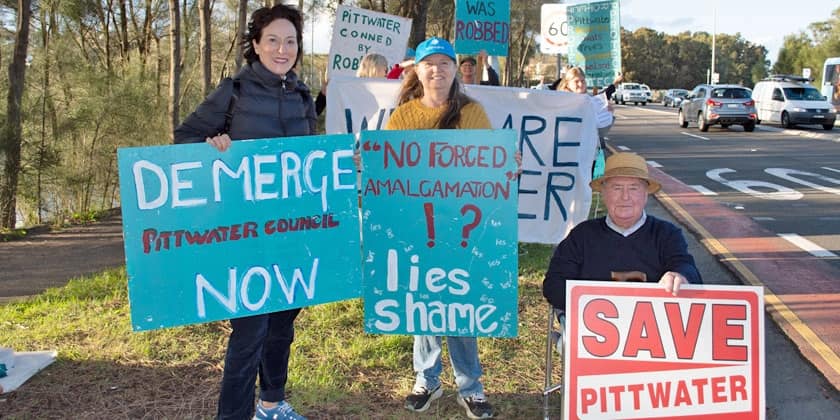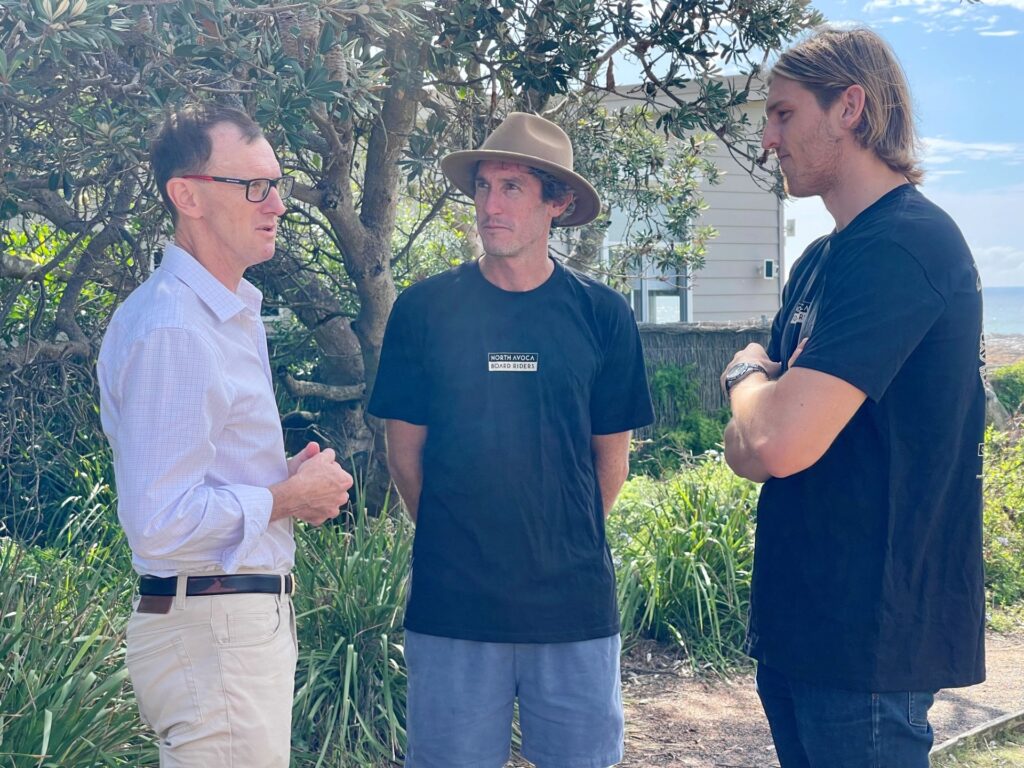Residents for De-amalgamation, who have been campaigning for the demerger of several of the NSW councils who were forced to merge by the former Coalition state government in 2016, have labelled the NSW Labor Government’s new Bill on demerging councils “problematic on many grounds”.

By Jacquelene Pearson
“It relies on the amalgamated council to initiate the de-amalgamation process,” Residents for De-amalgamation have informed their supporters via email.
“This effectively ruins the chance for residents in any former smaller councils to start a demerger process themselves.”
Residents for De-amalgamation have noted that the Bill, to be introduced in the Legislative Assembly (lower house) by Local Government Minister, The Hon Ron Hoenig MP, is inconsistent with Labor’s 2023 election policy which was:
‘NSW Labor will not support the forced merger of local councils, nor will it support any forced demerger. NSW Labor does not oppose the merger or demerger of councils, but insists that this must be done voluntarily with the clear support of local residents as confirmed through a local plebiscite. NSW Labor will legislate to put in place independent mechanisms to enable this to occur.’
The group has also been critical of the Bill for giving the Local Government Minister the power to veto the demerger process, even if the Boundaries Commission recommends a demerger.
“It prohibits councils from conducting demerger referendums (like we did in the Inner West in 2021) unless approved by the Minister. It gives powers to the Minister to veto the demerger process — even if a majority vote in a referendum (like ours) to demerge.
“It removes the clause in the current law — which Labor put there in the first place — which makes government pay the cost of the de-amalgamation.”
Residents for De-amalgamation is supporting a Demerge NSW Alliance-initiated rally outside NSW Parliament at 9am on either March 12, 13 or 20 (depending on when Minister Ron Hoenig introduces his bill into the Legislative Assembly and when Dr Amanda Cohn’s bill is debated in the Legislative Council).
Minister Hoenig introduced the Bill, called the Local Government Amendment (De-amalgamations) Bill 2024, on February 6 but it is yet to be debated.
He said it set out “the Government’s policy for de-amalgamations.
“The bill removes a statutory roadblock to de-amalgamations that lingered unresolved for two years under Opposition members when in government, leaving those councils and communities that want to de-amalgamate in limbo,” Minister Hoenig said.
He described the Bill as providing “a vastly improved pathway to enable any previously amalgamated council across NSW, together with its community, to make an informed choice about whether it is in the community’s best interest to de-amalgamate.
“The bill does this by providing a council-led, democratic, fair, transparent and robust process that requires community consultation up‑front, independent scrutiny and a majority yes vote on a de-amalgamation constitutional referendum prior to the de-amalgamation proceeding.”
Two steps backwards
However, NSW Greens have joined Residents for De-amalgamation in questioning the Minister’s assessment of the Bills usefulness.
“Local councils across NSW are expected to foot the bill for their own de-amalgamation under new proposed legislation by the Minns Labor Government,” the Greens proclaimed in response to Hoenig’s introduction of the Bill.
“Under this proposed legislation: councils must present a business case demonstrating their financial sustainability including funding their own de-amalgamation to the Boundaries Commission; the Minister has to approve the demerger before a vote is held amongst residents.”
According to the NSW Greens, the proposed change comes while communities in Bombala, Canterbury Bankstown, Central Coast, Cootamundra-Gundagai, Guyra, Inner West, Pittwater, Hilltops and Tumbarumba continue to campaign for council de-amalgamation and the restoration of local democracy.
“Failed amalgamations were an expensive mess that the NSW Government created and they’re a mess that the state should be cleaning up,” Greens MLC and spokesperson for Local Government Dr Amanda Cohn said.
“Instead, this proposed legislation takes councils one step forward legally but two steps back because of the financial burden it poses for them to fund their own de-amalgamation.
“Impacted communities have already paid the cost for forced amalgamations through inefficiency, cuts to local services and weakened local democracy.
“The Minister had refused to progress any legislative change as recently as November 2023. Thanks to pressure from the Greens and community activists, legislative change is on the table – now we’ve got a fight to ensure the NSW Government accepts its financial responsibility to support councils wanting to demerge,” Ms Cohn said.
In late 2023, Amanda Cohn introduced a Bill in Parliament which would allow binding plebiscites to be held in relation to the de-amalgamation of local councils that would be funded by the NSW Government. This bill had the support of a majority of the Legislative Council cross-bench and was expected to be debated in March.
Policy failure
Minister Hoenig described the previous Government’s forced council merger policy as a policy failure “that proceeded after Labor in opposition warned clearly of the likely negative consequences.
“It was, in fact—as I have told the House on a number of occasions—a breach of faith with the people of NSW as the Liberal Party and National Party promised in writing that there would be no forced amalgamations,” Minister Hoenig said.
“By my estimation, this broken promise was smoothed over with more than $600 million in tied and untied grants to councils being amalgamated. Even after all this money came pouring into the 20 councils that amalgamated, nine of them had to seek special rate variations to cover their costs. And yet, at the end of the process, communities with merged councils had lower service standards that were far less effective and efficient than they were before they merged.”
The Minister stated that it was time to “put an end to this disappointing chapter in the history of local government in NSW by enshrining a permanent and effective pathway so that councils that wish to demerge are able to do so”.
However, that permanent pathway appears to make demerging an expensive and convoluted process that the Minister may end up overruling anyway.
“The current provisions prevent me, as Minister, from being able to recommend a proclamation to the Governor to give effect to a de-amalgamation process under section 218CC of the Local Government Act 1993. This has created a situation that has left councils and their communities waiting for the opportunity to assert their democratic and legal right to have a say in determining their own identity and future through a de-amalgamation process.
“I acknowledge that a private member’s bill has been put forward in the other place in an attempt to resolve these issues. However, the Government opposes that bill and has instead put forward this superior bill.
“That private member’s bill in the other place is fundamentally undemocratic and, if passed, has the potential to create legal, policy and financial difficulties long into the future. The bill I bring forward today is similar to what I flagged in November last year.
“It is a vast improvement on the existing provisions of the Act and on the private member’s bill. It addresses existing deficiencies in the Act and allows a fully informed council and community to vote on whether it is in their best interests to de-amalgamate.”


